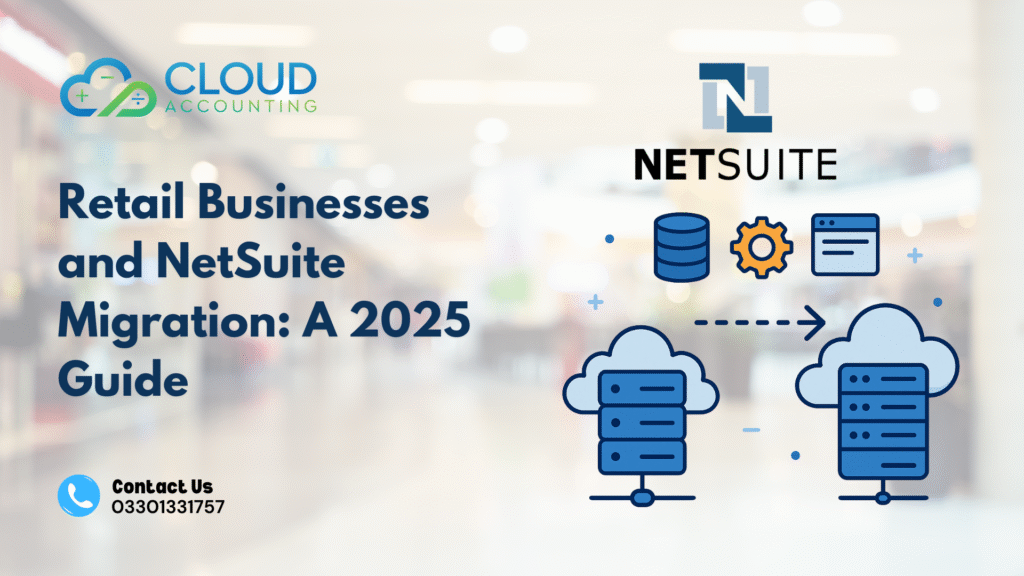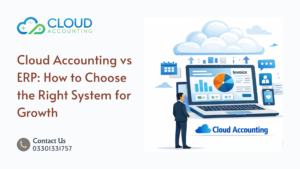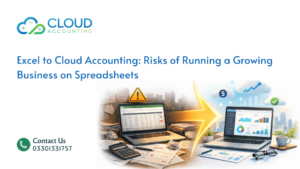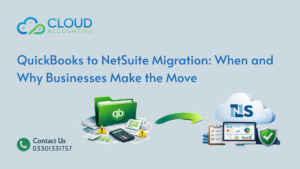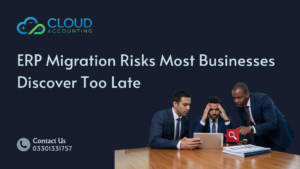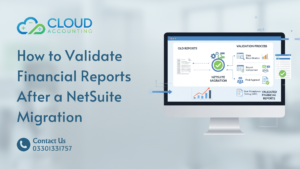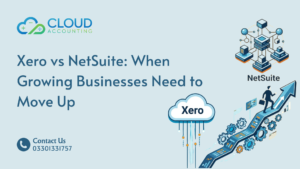Retail is changing faster than ever in 2025. From the rise of online marketplaces to the demand for seamless omnichannel shopping, retailers are under pressure to adapt. Legacy systems built on spreadsheets, QuickBooks, or outdated ERPs simply can’t keep up. That’s why NetSuite Migration for Retail has become a priority for growing businesses. By shifting to a cloud-first ERP designed for modern commerce, retailers can align operations, improve visibility, and prepare for sustainable growth.
Why Retailers Are Choosing NetSuite in 2025
Retailers have unique challenges that generic accounting systems can’t solve. Many still rely on siloed tools that make reporting, inventory, and POS management a nightmare. The move to NetSuite for retail businesses is driven by several advantages:
- Centralised data: Sales, accounting, and customer data live in one place.
- POS and eCommerce integration: Eliminate manual reconciliations between Shopify, WooCommerce, or in-store systems.
- Inventory accuracy: Real-time updates prevent costly stockouts or overstocking.
- Scalability: Multi-entity and multi-currency capabilities help retailers expand globally.
For many SMEs, NetSuite Migration for Retail is the difference between staying competitive and falling behind.
Challenges Retailers Face Without Modern ERP
Running a retail operation without a cloud-based ERP means inefficiencies build up quickly. Without a proper migration plan, businesses risk:
- Disconnected systems: POS, eCommerce, and accounting don’t “talk” to each other.
- Inventory mistakes: SKUs get duplicated, stock counts go wrong, and customers receive poor service.
- Slow reporting: Financial reports take weeks instead of minutes.
- Limited scalability: Expanding to new sales channels or international markets becomes costly.
For these reasons, NetSuite Migration for Retail is now seen as essential for ambitious businesses.
Key Benefits of NetSuite Migration for Retail
Retailers who invest in NetSuite unlock a wide range of benefits. Some of the most impactful include:
- Unified retail data: Combine POS, eCommerce, and financial data into one system.
- Advanced inventory management: Track stock in real-time across multiple stores, warehouses, and online channels.
- Automated compliance: Built-in tools simplify VAT, sales tax, and international compliance.
- Omnichannel readiness: Whether selling online, in-store, or through distributors, all transactions are tracked in one ERP.
- Scalable growth: Supports franchises, multi-location stores, and global expansion.
In short, NetSuite Migration for Retail gives businesses the confidence to scale without operational chaos. By reducing errors, automating workflows, and improving insights, retailers can focus on growth instead of firefighting.
Step-by-Step Retail NetSuite Migration Roadmap
Migrating to NetSuite is not just a technology switch; it’s a transformation project. Here’s a proven roadmap to make NetSuite Migration for Retail successful:
- Assessment – Review your current retail systems, including POS, eCommerce, and accounting platforms.
- Data Audit – Clean up customer records, product SKUs, and sales history to avoid future errors.
- Mapping – Align data fields from legacy systems to NetSuite’s structure.
- Testing – Run trial migrations to ensure POS and eCommerce transactions post correctly.
- Go-Live & Support – Roll out during low-volume retail periods and provide staff with training.
Each of these stages ensures NetSuite Migration for Retail is smooth and reduces business risk. By following this roadmap, retailers avoid downtime and protect the customer experience.
Common Pitfalls in NetSuite Migration for Retail
Despite its benefits, migration projects can fail if not managed correctly. Some of the most common pitfalls include:
- Inadequate data preparation – Duplicate SKUs or outdated product lists cause major issues.
- Neglecting POS and eCommerce integration – Retailers underestimate how complex these connections can be.
- Skipping staff training – Teams resist change if they don’t feel confident using the new system.
- Poor timing – Launching a migration during holiday or peak shopping seasons is risky.
Avoiding these pitfalls is crucial to ensure NetSuite Migration for Retail delivers real results.
How Cloud Accounting Supports Retail NetSuite Migration
Choosing the right partner can make all the difference. A successful migration isn’t just about moving data — it’s about creating a foundation for long-term retail growth. Cloud Accounting specialises in helping retailers transition to NetSuite with confidence, ensuring every stage of the project is managed with precision.
Here’s how we support your business during NetSuite Migration for Retail:
- End-to-end planning and execution – From initial system assessment and data audit through to the final go-live, we design a tailored migration roadmap for retailers. Our team ensures that customer records, SKUs, and sales histories are transferred accurately and remain fully usable in NetSuite.
- Retail-specific expertise – Unlike generic ERP consultants, we understand the unique needs of retail. Whether it’s POS integration with NetSuite, syncing Shopify or WooCommerce sales, or handling multi-location inventory, we configure NetSuite to fit your retail operations.
- Validation and compliance checks – Retailers operate under strict financial reporting and tax rules. We validate every transaction, invoice, and tax setting to ensure compliance with VAT, sales tax, or international reporting standards. This means you can trust your numbers from day one.
- Data quality assurance – Poorly migrated data is one of the main reasons projects fail. We clean, de-duplicate, and standardise your records before migration, so that your product lists, SKUs, and stock levels are reliable.
- Ongoing support and training – Migration doesn’t end at go-live. We provide ongoing technical support, staff training, and performance reviews to help retail teams feel confident with NetSuite’s reporting, dashboards, and inventory tools.
- Future-ready scalability – Cloud Accounting sets up NetSuite in a way that prepares your retail business for growth. Whether you want to expand internationally, add new sales channels, or manage franchises, your ERP will be ready to scale with you.
With Cloud Accounting, NetSuite Migration for Retail becomes a structured, low-risk process that goes beyond a simple data transfer. Our goal is to ensure your retail business gains efficiency, accuracy, and insights that fuel long-term success.
Conclusion
Retail is evolving fast, and 2025 is the year businesses can’t afford to delay upgrades. Consumer expectations are higher than ever, with shoppers demanding seamless online and offline experiences. Legacy tools slow growth, limit visibility, and make it harder to compete against agile, digitally native competitors.
That’s why NetSuite Migration for Retail is no longer just a back-office decision — it’s a critical growth strategy. By consolidating POS, eCommerce, accounting, and inventory into one powerful system, retailers can gain the real-time insights they need to make smarter decisions, manage costs, and scale with confidence.
Looking ahead, retailers who invest now will be better positioned to:
- Expand into new sales channels without operational chaos.
- Manage global supply chains with accurate inventory data.
- Stay compliant with tax and financial reporting in multiple markets.
- Deliver a superior shopping experience across every channel.
For ambitious retailers, NetSuite Migration for Retail is the key to turning today’s challenges into tomorrow’s opportunities. With Cloud Accounting as your trusted partner, your migration becomes smooth, accurate, and designed to support long-term success.
Book your free consultation today and discover how we can make your NetSuite project a success.

